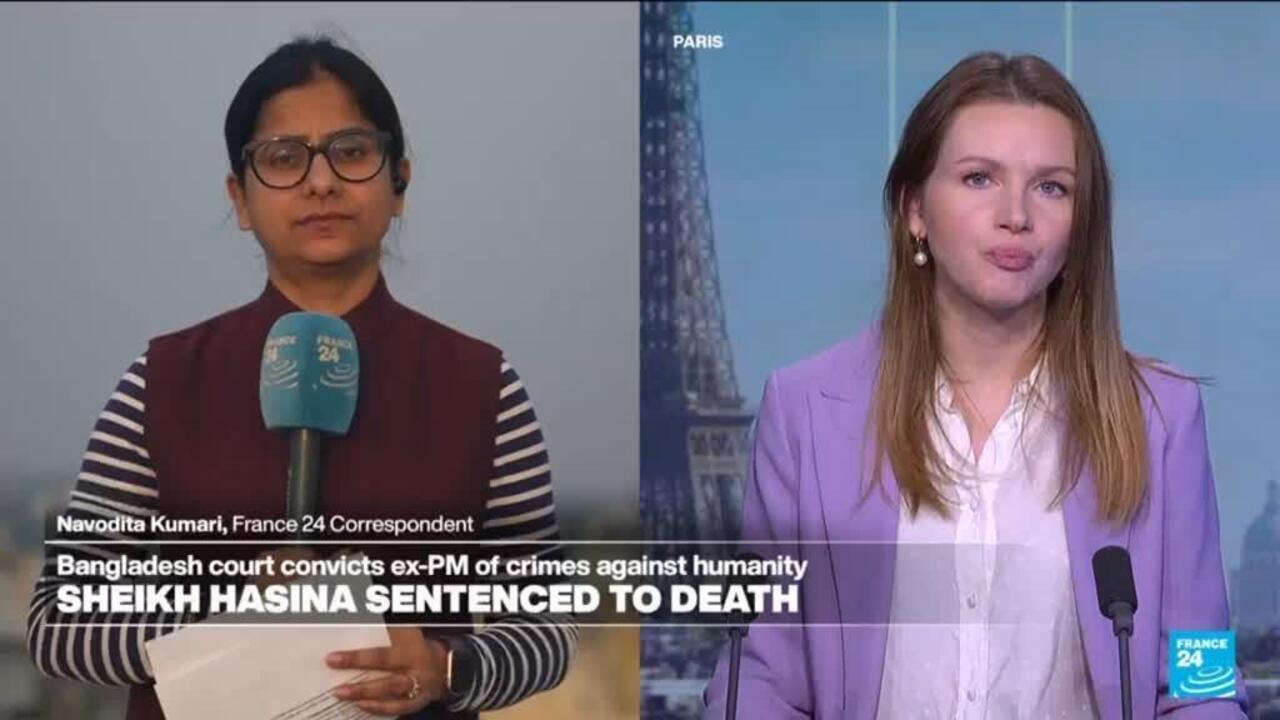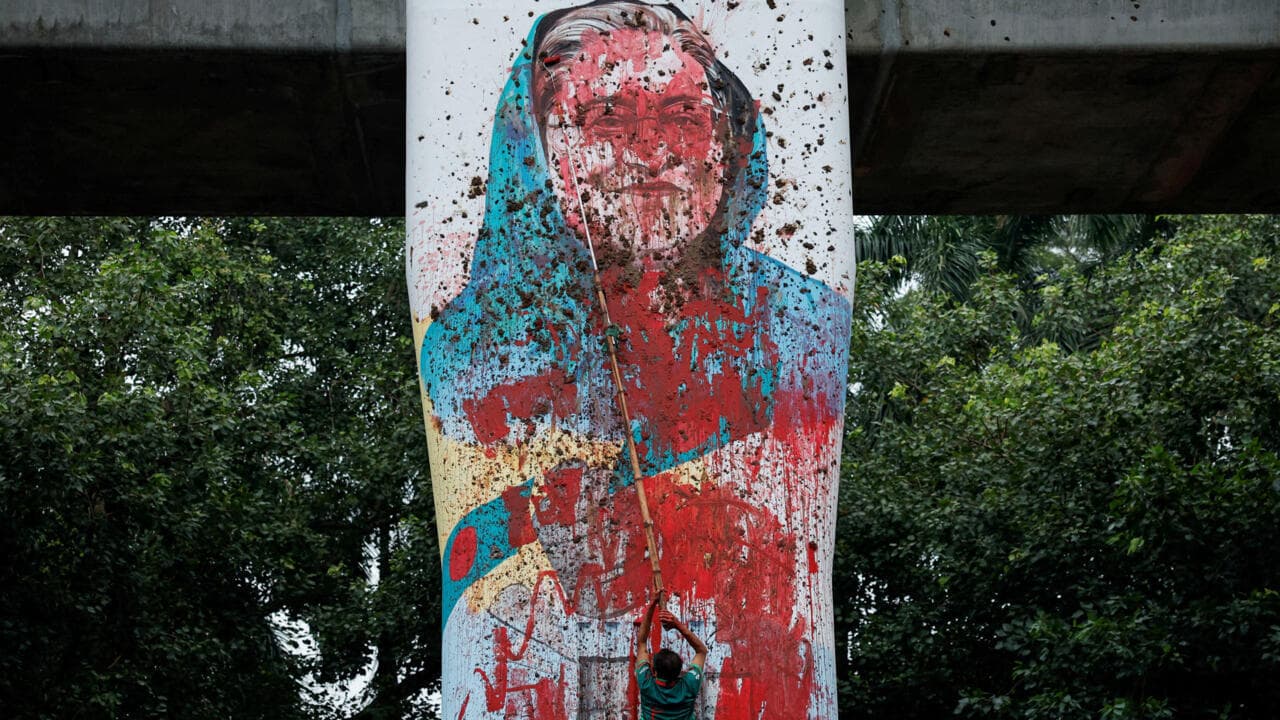A Bangladesh court convicted former prime minister Sheikh Hasina of crimes against humanity on Monday, sentencing the deposed leader to death by hanging for ordering a deadly crackdown on a student-led uprising last year.
The International Crimes Tribunal, Bangladesh's domestic war crimes court located in the capital Dhaka, delivered the guilty verdict amid tight security and in Hasina’s absence.
The highly anticipated ruling, which was broadcast live on national television, comes ahead of the first polls since her overthrow in August 2024.
"All the... elements constituting crimes against humanity have been fulfilled," judge Golam Mortuza Mozumder read to the packed court in Dhaka.
The former PM slammed the verdict as"biased and politically motivated", adding in a statement:"I am not afraid to face my accusers in a proper tribunal where evidence can be weighed and tested fairly".
The verdict can be appealed in the Supreme Court.

But Hasina's son and adviser, Sajeeb Wazed, said on the eve of the verdict that they would not appeal unless a democratically elected government took office with the participation of Hasina's Awami League.
The Awami League party has been barred from contesting February elections and it is feared that Monday's verdict could stoke fresh unrest ahead of the vote.
India 'notes the verdict' after extradition request
In the hours after the verdict, Bangladesh demanded India extradite Hasina as well as former interior minister Asaduzzaman Khan Kamal, also sentenced to death in absentia.
Hasina's autocratic rule was backed by New Delhi, and the 78-year-old fled to India after her ouster. She has been in hiding ever since.
The former minister's whereabouts are not known, but Bangladesh says he is also in India.
"We urge the government of India to immediately extradite the two convicts to the Bangladeshi authorities," Dhaka's foreign ministry said in a statement, saying it was"an obligatory responsibility for India".
Bangladesh warned that"granting asylum to these convicts... would be extremely unfriendly and an affront to justice".
India's foreign ministry said that it had"noted the verdict" of Hasina.
"India remains committed to the best interests of the people of Bangladesh, including in peace, democracy, inclusion and stability," the ministry said in a statement that did not directly address the issue of potential extradition.
Worst violence since 1971
During the trial, prosecutors told the court that they had uncovered evidence of her direct command to use lethal force to suppress a student-led uprising in July and August 2024.
According to a United Nations report, up to 1,400 people may have been killed during the protests between July 15 and August 5, 2024, with thousands more injured – most of them by gunfire from security forces – in what was the worst violence in Bangladesh since its 1971 war of independence.
Hasina was represented by a state-appointed defence counsel who told the court that the charges against her were baseless and pleaded for her acquittal.
Ahead of the verdict, Hasina dismissed the accusations and the fairness of the Tribunal proceedings, asserting a guilty verdict was"a foregone conclusion".
Bangladesh had been tense in the days preceding the verdict, with at least 30 crude bomb explosions and 26 vehicles torched across the country. There were no casualties, however.

